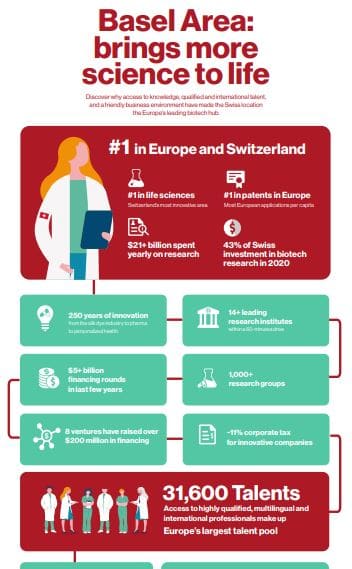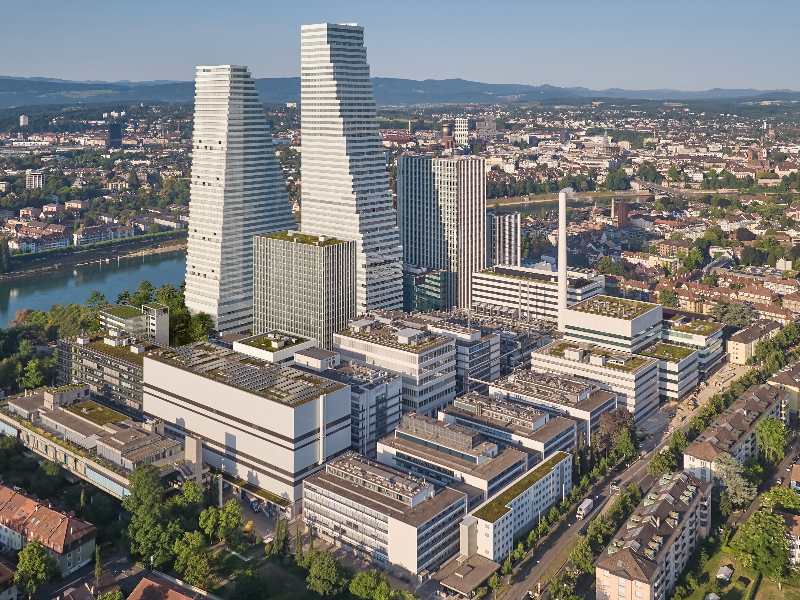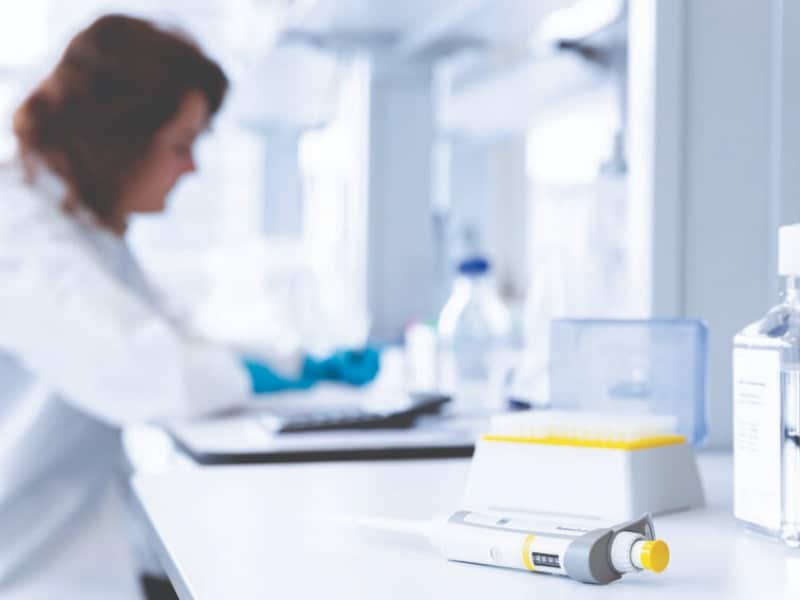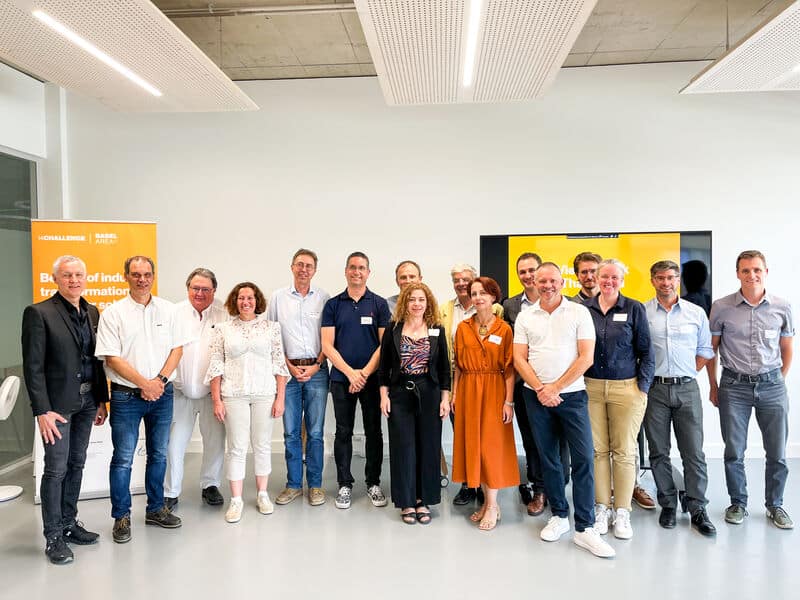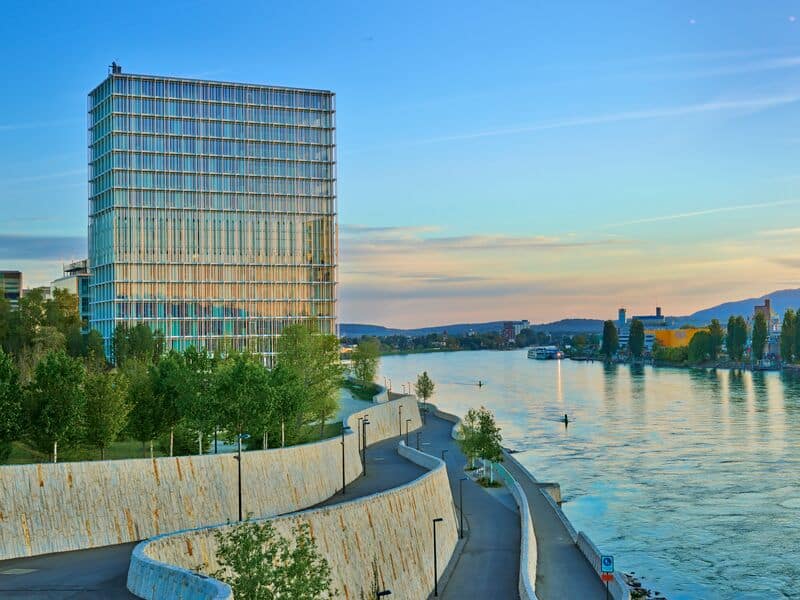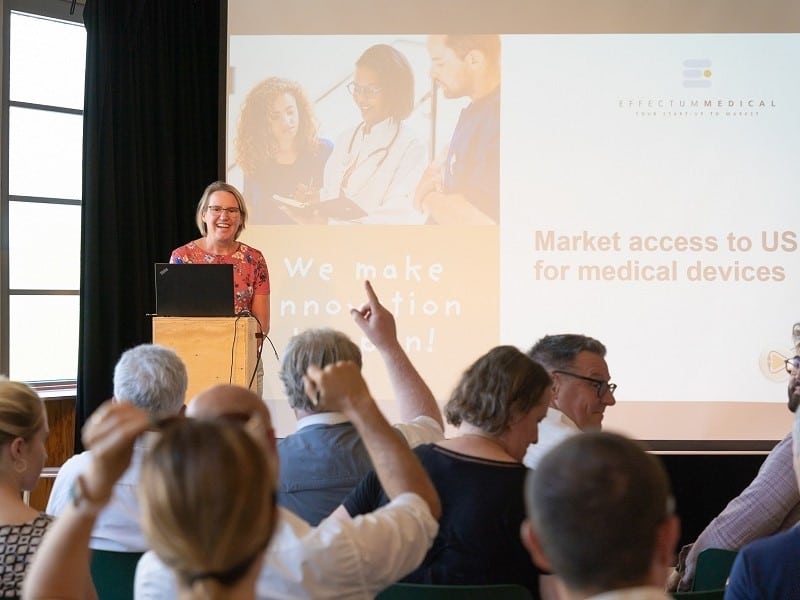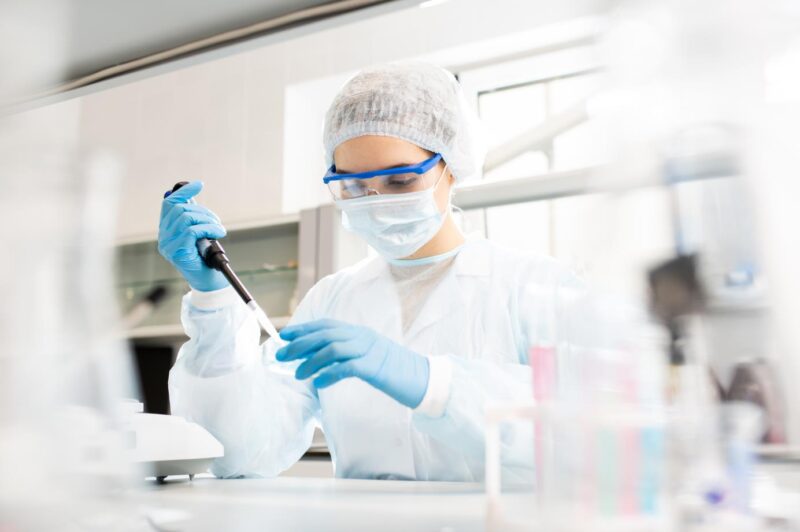
| News
Antimicrobial Resistance is a global threat – and the Basel Area is part of the solution
10.03.2022
The Basel Area has evolved into a unique ecosystem that supports a high concentration of experts and organizations from life sciences and healthcare. Thanks to their collective power the region has become one of the largest and most effective antimicrobial resistance hubs in Europe.

These days, when we hear the word “pandemic,” we largely think of COVID-19. But there’s a lesser-known worldwide health issue that some experts have dubbed the “silent pandemic”1.
It’s Antimicrobial Resistance (AMR), the ability of pathogens, such as bacteria, viruses, parasites, and other microorganisms that can cause disease, to resist antibiotics and other drugs that are widely used in public healthcare.
What is Antimicrobial Resistance and how big is the threat?
The great success of antimicrobial drugs may also be their weakness, as bacteria rapidly evolve to survive. Therefore, increasingly, a cocktail of drugs is needed to fight infection.
AMR is a growing crisis and is on the World Health Organization’s (WHO) list of top 10 global public health threats facing humanity.
Around 700,000 people are estimated to die annually from drug-resistant infections. Some experts predict that by 2050 this number could reach a staggering 10 million and cost more than USD 100 trillion in healthcare and associated costs.
This is a shocking fact at a time when many of the giant pharma companies have stepped away from large-scale antibiotic drug development in favor of more lucrative drugs, such as cancer therapies (see this nature article).
According to the new Bio Report, published in February 2022, and also featured in Fierce Biotech, “The breadth and novelty of the antibacterial clinical-stage pipeline is insufficient to meet the ongoing threat of wide-spread infection from drug-resistant strains,” wrote the authors. They added: “All innovation needs a functional, efficient ecosystem for it to succeed in generating life-saving products.”
The WHO says that to fill the gap, and cope with the growing AMR threat, urgent and collective action is required on the part of governments, the public and private sector, health experts, scientists, universities, and research establishments.
Who are the pioneers in the field of AMR in the Basel Area?
The Basel Area has evolved into a unique ecosystem of many different stakeholders collaborating on AMR, including academia, research institutes, startups to leading corporations, policy makers and innovation agencies, incubators, and accelerators. The ecosystem supports a high concentration of experts and organizations whose collective power makes the area one of the largest and most effective antimicrobial resistance hubs in Europe.
”Antimicrobial resistance is a massive threat - but Switzerland, and the Basel Area in particular, are part of the solution. There are many players in the Basel Area who are working hard to tackle the issues surrounding AMR. And it is this collaborative attitude of all the players, with a mindset of supporting each other, that makes the whole greater than the sum of its parts. We can truly state that in antimicrobial resistance, Basel is the place to be in Europe.
Dr. Franz WaibelHead of International Markets and Business Affairs, Basel Area Business & Innovation
Highlighting the sheer concentration of top-level research establishments and programs, Prof. Christoph Dehio of Biozentrum, the Center for Molecular Life Sciences, at the University of Basel commented2: “Switzerland as a research location, with Basel at its center, offers ideal conditions for this ambitious, interdisciplinary research project. It is coordinated by researchers at the University of Basel and includes various working groups in Switzerland and abroad. At its core, 18 research groups in Basel work at the Biozentrum and the Department of Biomedicine of the University, at the University Hospital, and the Department of Biosystems Science and Engineering of ETH Zurich in Basel.”
Antimicrobial resistance programs
Among the Basel Area, AMR pioneers are many progressive programs such as:
- INCATE, which brings together translational and basic research, industry, experienced entrepreneurs, and investors from across Europe to accelerate innovation.
- NCCR Antiresist is a Swiss-wide research consortium funded by the Swiss National Science Foundation (SNSF). Centered at its home institution, the University of Basel, NCCR AntiResist brings together 29 research groups in Switzerland and one in Israel all dedicated to tackling AMR.
- SPEARHEAD, a consortium of 8 public and 4 private Swiss institutions who joined forces to address AMR by launching the ‘Swiss Pandemic & AMR – Health Economy Awareness Detect’ (SPEARHEAD) partnership.
- D-BSSE – Department of Biosystems Science, Researchers from the Machine Learning and Computational Biology Lab, and colleagues from the University Hospital Basel, have found a faster way of predicting AMR through computer algorithms. This could help treat serious infections more efficiently in the future.
- Other Basel Area AMR pioneers include Swiss TPH, the UKBB University Children’s Hospital of Basel (part of SPEARHEAD), and the University Hospital Basel.
Antimicrobial resistance in the area of therapeutics
In the area of therapeutics, companies with an active role in AMR, include BioVersys, Polyphor, Basilea, and Selmod.
Roche, and Novartis-owned generics and biosimilars firm Sandoz are exceptions to the pharma giants who have abandoned R&D into new antibiotics and AMR research. Both have continued to actively pursue the development of antimicrobial treatments.
In diagnostics, Roche continues to feature, along with another locally based company Resistell.
”Basel has long been a hub of biopharmaceutical innovation. Establishing a presence within the city will allow the fund to operate and identify promising investment opportunities on a truly global scale.
Martin HeideckerChief Investment Officer, AMR Action Fund
Funding and networking initiatives for antimicrobial resistance
There are several bold funding and network initiatives that have been launched to assist in financing research and development of new methods of tackling AMR at the industry and governmental level. There are also accelerator and incubator initiatives to help start-up companies and those wanting to relocate or establish a base in the area.
Recently, AMR Action Fund, the world’s largest public-private partnership (PPP) for the development of novel antibiotics, opened its new European office in Basel, further bolstering the area’s reputation as a major European Center in combatting antibiotic resistance. The investment and innovation promotion agency Basel Area Business & Innovation supported the Boston-based AMR Action Fund in establishing its new European center.
This broad alliance between industry experts, governments, funding, and development agencies, will be exemplified and highlighted in the upcoming AMR conference which takes place in Basel from 7th-8th April.
The conference is a platform for SMEs, start-ups, big pharma, academia, investors, and public institutions to discuss strategies and the specific challenges faced by SMEs in bringing new antimicrobial treatments and diagnostics to the market. Now in its 6th year, the conference clearly illustrates the importance of the Basel area as the central hub of AMR research in Europe.
The Basel Area ecosystem
The Basel Area is home to more than 700 life-science companies, many of whom are involved in research into antimicrobial resistance and the development of new drugs and therapies to combat diseases. It’s a progressive ecosystem comprising large companies, spin-offs, start-ups, suppliers, leading research organizations, an experienced talent pool and a pragmatic regulatory framework.
“There is everything here from early AMR research, to clinical development, to diagnostics, to accelerator and incubator organizations,” says Dr. Franz Waibel.
“When we speak of the Basel Area ecosystem, we are talking about an environment that hosts and supports some of the world’s leading research establishments, universities, and hospitals. It’s home to global pharmaceutical giants, as well as innovative and enterprising spins-off and start-ups. There is strong support from the Swiss Federal Authorities, with many initiatives underway on AMR, and there is a range of accelerator and incubator organizations to help with the establishment and development of new enterprises.”
Video documentary: Basel Area leading the fight against the antibiotics crisis with innovation (2).
“On top of that, we have great road, rail, and air infrastructure. We are at the heart of Europe, bordering major markets in France and Germany. We have one of Europe’s largest pools of scientific talent from which to recruit, and, of course, it’s a great place to live and work,” he added.
Basel Area Business & Innovation is a non-profit agency dedicated to helping startups, institutions and companies find business success in the Basel Area. The agency helps develop a robust business climate and support innovative ventures. It attracts and supports companies moving into the area, connects organizations and entrepreneurs with collaboration partners, and helps create a vibrant ecosystem that fosters innovation.
The background on AMR
Antimicrobial resistance refers to all microbes that resist treatments designed to destroy them. Antibiotic resistance specifically deals with bacteria that are resistant to antibiotics.
AMR happens when microorganisms, such as bacteria, fungi, viruses, and parasites, adapt and survive, even when they are exposed to antimicrobial medicines that are meant to kill or limit their growth, such as antibiotics, antifungals, antivirals, antimalarials, and anthelmintics.
As a result, the medicines become ineffective and infections persist in the body, increasing the risks to the individual’s health, and the potential spread to others.
Infectious disease specialist Dr Esther Künzli of the Swiss Tropical and Public Health Institute (Swiss TPH) in Basel explains how AMR evolves:
“The aim of pathogens is to multiply. If we treat them, they try to evade the drugs we use. If they succeed, they can develop resistance to the drugs used. If we focus on bacteria or antibiotic resistance, one of the direct causes of the development of resistance is antibiotic use, both, in human medicine and in animal husbandry. Once resistant bacteria have developed, they can spread from person to person, through the environment, through travelers, and more,” she explained in a recent Swiss TPH article.
Antibiotics – an accidental game changer
The ancient Egyptians are said to have used moldy bread as a poultice to dress wounds and protect against infection.
However, it wasn’t until 1928 that Alexander Fleming, Professor of Bacteriology at St. Mary’s Hospital in London, made a startling discovery that ushered in a new era in the advancement of medicine…and quite by accident.
Returning from holiday, he found that a blob of mold on a dirty petri dish he’d left in his lab secreted a juice that repelled surrounding microorganisms. He discovered that the juice was capable of killing a wide range of harmful bacteria.
“I did not invent penicillin. Nature did that. I only discovered it by accident.” said Fleming.
The later refinement and development of the drug penicillin heralded the dawn of the antibiotic age in the 1940’s-50’s. Previously there had been no effective treatment for infections such as pneumonia, tuberculosis, gonorrhea, rheumatic fever, or blood poisoning. Modern antibiotics also help protect patients with chronic diseases, such as cancer, and those recovering from surgery.
In a prediction of things to come, Alexander Fleming, at his Nobel prize acceptance, cautioned against the over-use of antibiotics because of the potential microbial resistance to the drugs.
Sources:
1 Swiss TPH Antimicrobial resistance the silent pandemic
2 Video documentary – Credits: The Office for Economy and Labor (OEL) shared this video at the Swiss Innovation Forum.
nrp72.ch
blick.ch
